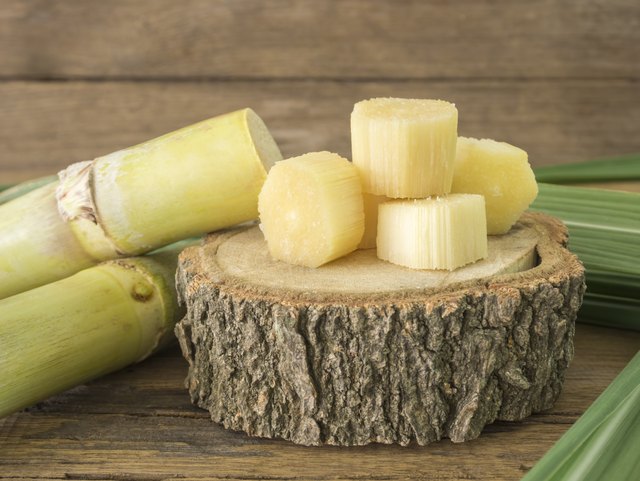Why Sugar and Cane Are Key Ingredients in Many Popular Beverages
Why Sugar and Cane Are Key Ingredients in Many Popular Beverages
Blog Article
Why Cane Sugar Handling Chemicals Are Essential for Modern Sugar Refining
The duty of walking stick sugar handling chemicals in modern sugar refining can not be overstated, as they are important to boosting both the performance of extraction and the overall quality of the final item. Representatives such as phosphoric acid and certain flocculants are used to eliminate pollutants, resulting in sugar that not just fulfills consumer assumptions however additionally abides by industry requirements. The effects of these chemicals expand beyond quality, touching upon market characteristics and ecological factors to consider. sugar and cane. This increases vital concerns regarding the sustainability of such practices and their influence on the future of sugar manufacturing.
Role of Handling Chemicals
The efficacy of walking stick sugar processing pivots significantly on the calculated application of handling chemicals. These chemicals play a crucial function in improving the efficiency and quality of sugar removal and refining. From the preliminary stages of juice removal to the final filtration actions, processing chemicals facilitate different important procedures.
In the removal stage, chemicals such as phosphoric acid and calcium hydroxide are employed to optimize the information procedure, assisting to get rid of pollutants and put on hold solids from the walking stick juice. This not only enhances the yield but also makes sure the quality of the end product. Furthermore, agents like flocculants help in the rapid settling of pollutants, therefore simplifying the general procedure.
As the processing developments, chemicals are made use of in decolorization and crystallization stages. Activated carbon and ion exchange resins serve to eliminate color and smell, making certain that the polished sugar fulfills consumer high quality criteria. Ultimately, the function of processing chemicals prolongs past functional performance; they substantially affect the sensory characteristics of the end product, adding to market competitiveness. Therefore, the thorough choice and application of these chemicals are essential for achieving optimal outcomes in cane sugar processing.
Key Types of Chemicals
Walking cane sugar handling depends on a range of essential chemicals that facilitate each phase of production. These chemicals play important roles in making clear, whitening, and detoxifying the sugar extracted from walking cane.
One key category of chemicals consists of flocculants, such as polyacrylamide, which aid in the clarification procedure by promoting the gathering and settling of pollutants. Additionally, calcium hydroxide is commonly utilized to counteract level of acidity and aid in the elimination of non-sugar parts.
Bleaching representatives, such as triggered carbon and sulfur dioxide, are used to decolorize the syrup, resulting in a clearer last item. These chemicals aid get rid of shade substances that may impact the sugar's appearance and marketability.
Furthermore, phosphoric acid works as a pH regulatory authority throughout the processing phases, making sure optimal conditions for the enzymatic activities associated with sugar extraction and purification.
Other essential agents consist of edta (ethylenediaminetetraacetic acid), which chelates steel ions that might catalyze unfavorable responses, and sodium hydroxide, which assists in pH control throughout the refining process. Collectively, these chemicals boost efficiency and guarantee a premium walking stick sugar item.
Benefits for Sugar Top Quality
Usually ignored, making use of details handling chemicals considerably enhances the overall high quality of walking cane sugar. These chemicals play a critical role in refining procedures, making sure that the end product meets rigid market requirements for pureness and preference.

In addition, refining chemicals aid in achieving a constant granulation and texture, which are vital for customer acceptance. By managing the condensation process, these check here chemicals guarantee that the sugar crystals form uniformly, resulting in a much more enticing item that liquifies well in numerous applications.
Furthermore, making use of these chemicals can improve the life span of walking stick sugar by reducing dampness absorption and microbial development. In general, the tactical application of processing chemicals is important for supplying top notch cane sugar that meets consumer assumptions and sector demands.
Ecological Influence Factors To Consider

Additionally, the energy-intensive nature try this out of sugar refining, intensified by chemical use, typically causes raised carbon emissions. This adds to climate modification and elevates concerns pertaining to the sustainability of current refining techniques. In addition, the sourcing of these chemicals may entail methods that threaten biodiversity, such as monoculture farming, which lowers the resilience of farming ecological communities.

To alleviate these effects, sugar refiners are increasingly discovering sustainable alternatives and adopting ideal techniques that minimize chemical use. Executing rigorous environmental management systems can assist make certain that the refining process lines up with environmental criteria and advertises biodiversity. Ultimately, a balanced strategy that prioritizes both sugar top quality and ecological stewardship is crucial for the long-term stability of the sugar market.
Future Fads in Refining
As the sugar industry comes to grips with the ecological obstacles related to conventional refining approaches, cutting-edge techniques are arising to improve both effectiveness and sustainability. One significant trend read is the fostering of environment-friendly chemistry principles, which focus on making use of safe, biodegradable processing chemicals. This change not only minimizes ecological influence yet also addresses customer need for cleaner manufacturing approaches.
An additional encouraging development is the application of sophisticated filtration technologies, such as membrane layer separation and adsorption processes. These techniques improve the clearness and quality of the sugar while reducing the quantity of wastewater generated during refining. Additionally, the assimilation of electronic technologies, consisting of IoT and AI, is changing operational effectiveness by making it possible for real-time tracking and anticipating maintenance, therefore lessening resource waste.
Furthermore, making use of by-products from sugar refining, such as bagasse and molasses, is gaining traction. These materials can be transformed into biofuels or value-added items, contributing to a round economic climate within the industry. Collectively, these patterns indicate a change towards even more sustainable methods that not only improve functional efficiency but likewise align with global sustainability goals, ensuring the future stability of sugar refining.
Conclusion
Cane sugar handling chemicals are necessary in modern sugar refining, substantially improving the efficiency and high quality of sugar extraction. The strategic use these chemicals not just improves the pureness and flavor of the end product but also guarantees constant formation and texture. As the industry significantly prioritizes sustainability, the adoption of environmentally-friendly processing agents is most likely to form future patterns in refining, eventually leading to higher high quality products and extended life span for consumers.

Eventually, a well balanced method that prioritizes both sugar quality and environmental stewardship is crucial for the long-term viability of the sugar market.
Walking cane sugar processing chemicals are crucial in contemporary sugar refining, dramatically improving the efficiency and high quality of sugar extraction.
Report this page